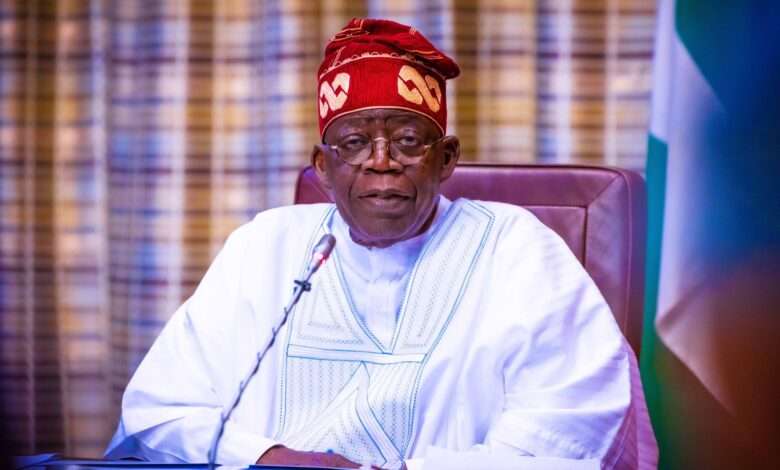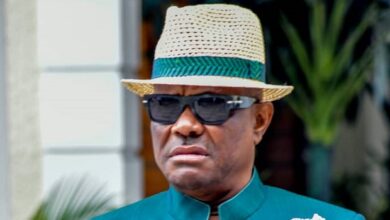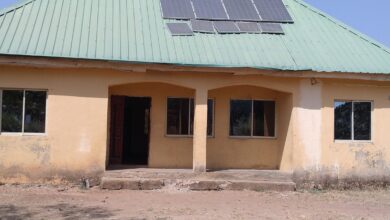
A Comprehensive Analysis of His Leadership and Impact
In the heart of Nigeria’s political landscape, President Bola Tinubu’s administration has been both a beacon of hope and a source of controversy. His legacy is complex and multifaceted. On one hand, he is credited with bringing about significant economic and social reforms that have improved the lives of many Nigerians. On the other hand, he has been criticized for some of his policies and decisions, which have had negative consequences for some people. As we navigate the nuanced terrain of his presidency, this story aims to dissect the highs and lows, presenting a comprehensive analysis of the achievements that have defined his leadership.
- Economic Overhaul Pays Off:
Under Tinubu’s watch, Nigeria has witnessed a reinvigorated economy. Strategic economic reforms, including tax incentives and business-friendly policies, have attracted foreign investments, propelling the nation toward sustained growth. The economy has shown signs of improvement since he took office, with GDP growth increasing and inflation declining. However, there are still challenges, including high unemployment and poverty rates.
In terms of unemployment, the rate has declined somewhat since Bola Tinubu took office, but it is still relatively high at about 23%. Poverty remains a significant problem, with over 40% of the population living below the poverty line. The government has implemented a number of initiatives to address these issues, including job creation programs and social welfare schemes. However, more work is needed to ensure sustainable economic development. - Infrastructure Boom:
Roads, bridges, and more – Tinubu’s commitment to infrastructural development has reshaped the nation’s connectivity. Key projects have received a substantial financial injection, promising a brighter future for transportation and logistics. - Security Takes Center Stage:
Facing the longstanding issue of insecurity and terrorism head-on, Tinubu’s administration has faced this challenge for a very long way before he was sworn in as the President. Despite the efforts by the government to combat these threats, they have persisted and have had a negative impact on the lives of many Nigerians. These issues have been a major challenge for the government, and have led to a lack of trust in the government and a feeling of hopelessness among many Nigerians. - Social Welfare Initiatives:
Tinubu’s government has not forgotten the most vulnerable. Social welfare programs, including targeted cash transfers and educational reforms, underscore the commitment to improving the lives of ordinary Nigerians. One example is the “National Social Investment Program” (NISP), which has helped to provide social safety nets for the most vulnerable people in the country. - Corruption Clouds the Horizon:
Despite strides in various sectors, allegations of corruption have cast a shadow on Tinubu’s presidency. Calls for greater transparency and accountability are intensifying as critics demand a more robust approach to tackling corruption within the government. Over the years, corruption has eaten deeply entrenched in all levels of society, and its estimated to cost the country billions of naira each year. This has led to a situation where many citizens have lost faith in the government and the political system. Corruption is a major challenge that needs to be addressed in order for the country to move forward. - Ethnic and Regional Strife:
In the pursuit of national unity, Tinubu’s administration has faced criticism for inadvertently stoking ethnic and regional tensions. Critics argue that divisive policies and rhetoric need careful reevaluation to preserve the fragile fabric of national unity. The tensions between different ethnic and religious groups have led to a number of conflicts, some of which have been very violent. This conflicts have resulted in hundreds of deaths and the displacements of thousands of people. - Socio-Economic Hurdles Persist:
While economic reforms have been implemented, certain socio-economic challenges persist. Unemployment rates and income inequality continue to plague the nation, requiring a more comprehensive strategy to address these entrenched issues. These socio economic challenges have led to frustration and anger among many Nigerians, and they have been a source of instability and conflict. Many people are still living in poverty and lack access to basic services such as education, healthcare, and clean water. Even, some children lack education and it is a major barrier to economic development and social mobility. - Human Rights Under Scrutiny:
Concerns about the stifling of dissent and freedom of speech have brought human rights issues to the forefront. The administration faces criticism for alleged suppression of opposition voices and media restrictions, both at home and on the international stage. This has been a contentious one as there’ve been a number of allegations of human rights abuses by the government, including extra judicial killings, arbitrary arrests, and torture. In addition, there have been concerns about freedom of expression, with journalists and activists facing intimidation and harassment. - Healthcare and Education Initiatives:
A notable highlight of Tinubu’s presidency has been the establishment of hospitals and schools across the nation. These endeavors underscore the government’s commitment to improving healthcare accessibility and enhancing educational opportunities, key pillars for building a healthier and more educated populace. - Powering the Nation:
In the realm of energy, the administration has taken strides to address the persistent issue of electricity. Investments in the power sector have been made to enhance generation, distribution, and transmission capabilities, with a vision to provide more reliable and accessible electricity to the Nigerian people. - Devaluation of the Nigerian Currency:
The value of Naira has fallen significantly in recent years, due to a number of factors, including declining oil prices and political instability. The falling value of the naira has made imported goods, including fuel, more expensive. - Removal of Fuel Subsidies:
For many years, the Nigerian government subsidized the price of fuel, keeping it artificially low. However, presently, the government has phased out these subsidies, leading to a significant increase in fuel prices. This has been a controversial policy, with some arguing that it is necessary to reduce government spending, while others say that it is causing hardship for many Nigerians - CONCLUSION:
In the intricate tapestry of Bola Tinubu’s presidency, accomplishments and challenges
coexist. As Nigerians navigate the intricate dynamics of their political landscape, the need
for a balanced, transparent, and accountable government becomes increasingly evident.
Only time will reveal the full impact of Tinubu’s term, but one thing remains certain – the
Nigerian people continue to scrutinize and demand excellence from their leaders



